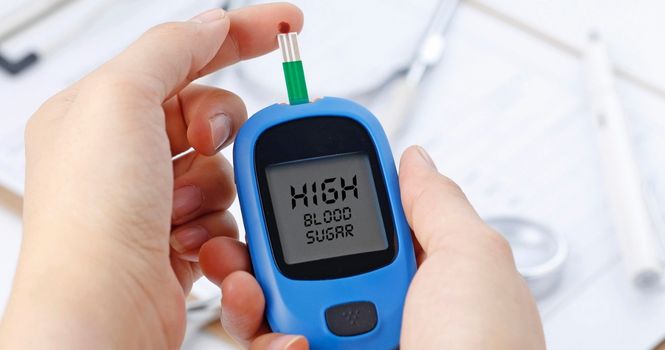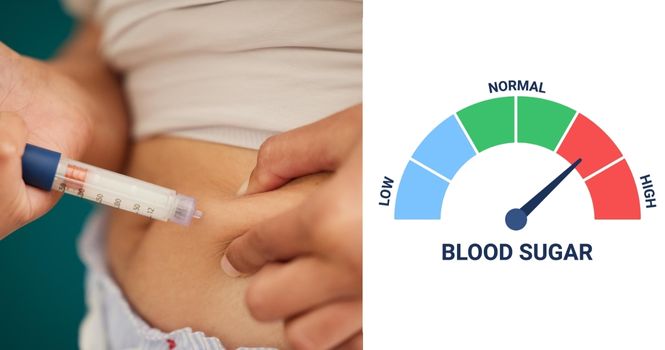Our body’s regulation of blood sugar, or glucose, is an intricate process, necessary for providing energy to cells. Most people associate high blood sugar with consuming meals, especially those high in carbohydrates.
However, you may find your blood sugar levels rising even when you’re not eating, which can be confusing and concerning.
Let’s see why it happens
The Body’s Balancing Act: Blood Sugar Regulation
To understand why blood sugar can rise without eating, it’s essential first to understand how your body regulates glucose.
After you eat, your body breaks down carbohydrates into glucose, which enters your bloodstream. In response, your pancreas releases insulin, which allows glucose to enter cells for energy or storage.
However, the body also has mechanisms to increase blood sugar levels when needed, such as during periods of fasting or high-energy demands.
For example, while you’re sleeping or in between meals, the liver releases stored glucose to keep your blood sugar levels stable. This process is known as gluconeogenesis.
Reasons for Non-Food-Related Blood Sugar Spikes
Dawn Phenomenon: This natural rise in blood sugar occurs in the early morning hours, usually around 7 a.m., as part of the body’s preparation for waking and the upcoming day’s activities. The liver releases glucose to provide energy, resulting in increased blood sugar levels.
Somogyi Effect (Rebound Hyperglycemia): In people with diabetes, taking too much insulin or not eating enough at night can cause blood sugar levels to drop too low in the middle of night, around 3 am. The body responds by releasing stress hormones to raise blood sugar levels, sometimes to levels higher than normal.
Physical Stress: Illness or injury can cause the body to release stress hormones, which stimulate glucose release from the liver, leading to higher blood sugar levels.
Emotional Stress: Similarly, emotional stress can trigger the release of stress hormones that raise blood sugar levels.
Certain Medications: Some drugs, such as steroids and beta-blockers, can cause a rise in blood sugar levels.
Insulin Resistance: In people with type 2 diabetes or prediabetes, the cells become less responsive to insulin, leading to a buildup of glucose in the bloodstream.
Managing Non-Food-Related Blood Sugar Spikes
If you’re noticing a pattern of high blood sugar levels without eating, it’s important to discuss this with your diabetologist. They may recommend changes to your medication regimen or lifestyle adjustments to help manage your blood sugar levels better.
Also, regular physical activity, stress management techniques, and maintaining a healthy diet can help improve your body’s insulin sensitivity and overall blood sugar control.
Summary
While it may seem paradoxical, there are several reasons why blood sugar might increase even without food consumption. Understanding these factors can help manage your blood sugar levels effectively.
However, it’s important to remember that everyone is unique, and what works for one person may not work for another.
Therefore, individualized advice from a healthcare provider or a registered dietitian is essential.
Always keep an open line of communication with your Family Physician to ensure optimal management of your blood sugar levels.













